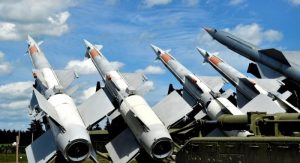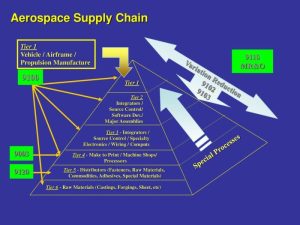Step into the world of Military defense systems where cutting-edge technology meets strategic defense mechanisms, paving the way for new advancements and innovations in the field of modern warfare. Get ready to explore the evolution, examples, and impact of artificial intelligence in this riveting discussion!
Military Defense Systems
Military defense systems play a crucial role in safeguarding nations from potential threats and attacks. These systems have evolved significantly over the years, incorporating advanced technologies to enhance their effectiveness on the battlefield.
Types of Military Defense Systems
- Missile Defense Systems: Designed to intercept and destroy incoming missiles before they reach their targets.
- Radar Systems: Used for detecting and tracking aircraft, missiles, and other objects in the sky.
- Cyber Defense Systems: Protecting military networks and systems from cyber attacks and hacking attempts.
- Electronic Warfare Systems: Disrupting enemy communication and radar systems to gain a tactical advantage.
Examples of Advanced Military Defense Systems
- The Iron Dome (Israel): A missile defense system capable of intercepting and destroying short-range rockets.
- Aegis Combat System (USA): A sophisticated radar and missile defense system used on naval vessels.
- S-400 Triumf (Russia): A long-range air defense system with advanced missile capabilities.
Role of Artificial Intelligence in Military Defense Systems
Artificial intelligence is increasingly being integrated into military defense systems to improve decision-making processes, enhance target identification, and automate certain tasks. AI algorithms can analyze vast amounts of data quickly and accurately, providing valuable insights to military operators in real-time.
Evolution of Military Defense Systems
- Early defense systems relied on simple tactics and technologies, such as fortifications and basic weapons.
- Advancements in radar, missiles, and electronic warfare have revolutionized modern defense systems, making them more effective and sophisticated.
- The integration of AI, drones, and autonomous systems is shaping the future of military defense, enabling faster response times and greater precision in targeting enemy threats.
Weight Management Clinic Business Services
Weight management clinics offer a range of services aimed at helping individuals achieve their weight loss goals in a healthy and sustainable way.
Services Offered by Weight Management Clinics
- Personalized weight management plans tailored to individual needs and goals.
- Nutrition counseling to educate clients on healthy eating habits and portion control.
- Physical activity guidance to help clients incorporate exercise into their daily routine.
- Behavioral therapy to address emotional and psychological factors influencing weight gain.
- Medical supervision for those with underlying health conditions that may affect weight loss.
Importance of Personalized Weight Management Plans
Personalized weight management plans are crucial as they take into account an individual’s unique body composition, metabolism, lifestyle, and weight loss goals. This tailored approach ensures that clients receive the most effective and sustainable strategies for long-term success.
Integration of Technology in Weight Management Clinics
- Use of fitness tracking apps and wearable devices to monitor physical activity and calorie expenditure.
- Online platforms for remote consultations, progress tracking, and access to educational resources.
- Body composition analysis tools for measuring changes in muscle mass, body fat percentage, and overall progress.
Impact of Nutrition Counseling
Nutrition counseling plays a vital role in weight management programs by teaching clients how to make healthier food choices, balance macronutrients, and create sustainable meal plans. By understanding the importance of nutrition, clients can make informed decisions that support their weight loss journey.
Aerospace and Defense
Aerospace and defense industries play crucial roles in national security and technological advancements. While both sectors are interconnected, they have distinct focuses and objectives.Aerospace technology is essential for enhancing defense capabilities by providing advanced aircraft, satellites, and communication systems. These technologies enable military forces to gather intelligence, conduct surveillance, and carry out strategic missions with precision and efficiency.
Similarities and Differences
- Aerospace and defense industries both involve the development and implementation of cutting-edge technologies for military and security purposes.
- One key difference is that aerospace industry encompasses civilian applications such as commercial aviation and space exploration, while defense sector is primarily focused on national security and defense.
- Both sectors require rigorous testing, research, and development to ensure the reliability and effectiveness of their products.
Challenges Faced
- Companies in the aerospace and defense sector often face regulatory hurdles and compliance requirements due to the sensitive nature of their work.
- Securing funding for research and development projects can be challenging, as these initiatives require substantial investments in technology and resources.
- Global competition and geopolitical tensions can impact the growth and sustainability of companies operating in the aerospace and defense sector.
Advancements in Aerospace Technology
- Advancements in aerospace technology, such as stealth capabilities, drones, and hypersonic weapons, play a vital role in enhancing national security by providing superior defense mechanisms.
- Integration of artificial intelligence, cyber defense systems, and space-based technologies further strengthen defense capabilities and enable proactive responses to evolving threats.
- Collaborations between government agencies, private companies, and research institutions drive innovation in aerospace technology, contributing to overall defense readiness and strategic deterrence.
Last Recap

In conclusion, Military defense systems continue to redefine the landscape of modern warfare with their advanced capabilities and strategic significance. From historical evolution to the latest innovations, these systems play a crucial role in shaping the defense strategies of nations worldwide. Stay tuned for more insights into this fascinating realm of technology and defense!
FAQ Summary
What are some examples of advanced military defense systems?
Advanced military defense systems include missile defense systems like THAAD and Aegis, as well as electronic warfare systems like the EA-18G Growler.
How has artificial intelligence impacted military defense systems?
Artificial intelligence has revolutionized military defense systems by enabling autonomous decision-making, predictive analytics, and enhanced situational awareness on the battlefield.
What is the role of technology in the evolution of military defense systems?
Technology has played a crucial role in the evolution of military defense systems, enabling faster response times, improved accuracy, and the ability to counter emerging threats effectively.




